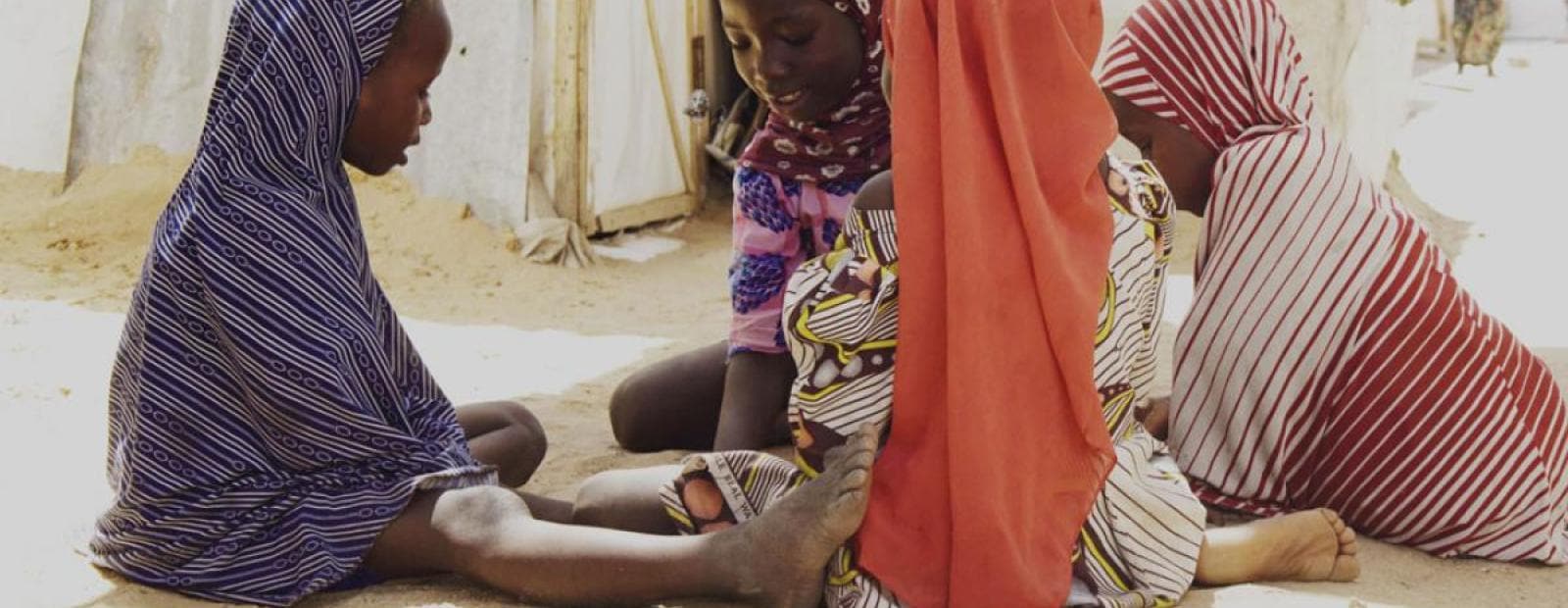Fighting Malaria on the Frontlines
World Malaria Day is observed on the 25th of April each year to increase awareness of the global burden of malaria. On this year’s World Malaria Day, Bayer joins UN Foundation’s Nothing But Nets and many others in raising our voice to this cause.
Malaria is a disease of poverty and inequity which affects above all the most vulnerable communities on our planet. In 2019 there were an estimated 229 million cases of malaria worldwide, but the African region continues to carry a disproportionately high share of the global malaria burden. Every day across the continent the disease kills over 1,000 people, the majority of whom are children under the age of five.
For more than 60 years Bayer has invested in the prevention of malaria and, as a global company working to improve health and nutrition, has an important role to play.
Meet Gilles Galliou, the Head of the Environmental Science unit at Bayer, focused on sustainably safeguarding and advancing the health, hygiene, and safety of people all over the world. He is leading a global team, which includes a group dedicated to supporting malaria control programs through the research, development, and supply of vector control solutions such as residual sprays for indoor treatment of houses (IRS) and active ingredients to manufacturers of insecticide-treated nets (LLINs).
Gilles grew up in West Africa where health and nutrition were — and still are — far from a given.

Today, the Borno State of Nigeria, West Africa, is home to one of the world’s most long-running humanitarian crisis. Over the last decade, conflict caused by the militia group Boko Haram has displaced over two million people and some seven million people across this vast and remote region are in need of urgent humanitarian assistance.
Makeshift accommodation, unsanitary living conditions due to overcrowding and lack of drainage, and malnutrition have led to a surge of infectious diseases. By far malaria is the deadliest threat. 23 percent of all malaria cases worldwide occur in Nigeria and over one-third of all deaths in Borno are due to the disease, more than any other cause.
With health infrastructure scarce — 41 percent of Borno health facilities are no longer running — prevention of diseases such as malaria is vital. That’s why Bayer has teamed up with the UN Foundation’s Nothing But Nets organization and the MENTOR Initiative, making an in-kind contribution of IRS product Fludora® Fusion to help protect close to 400,000 persons by reducing malaria transmission across three internally displaced peoples camps.
“Moving from France to Africa at a young age allowed me to understand first-hand not only the importance of disease prevention but more generally the importance of ensuring healthy environments. This time inspired my studies and my career in this business,” explains Gilles. “Today, 35 years after leaving Africa, as head of the global Environmental Science business I have been made acutely aware of the complex situation in Nigeria. This has led me to question if “Health for all”, the first element of our bold and ambitious company mission, is really achievable” reflects Gilles. “And yet we know that when it comes to malaria, that essentially is it.”
Malaria is both a preventable and treatable disease. It has been eliminated from vast swathes of the planet, but eradication will only come through ongoing commitment, innovation, and partnership.
Since the year 2000, the world has seen a dramatic reduction in the global malaria burden. Thanks to increased financial and political commitment enabling the scale-up of effective interventions, global malaria incidence and death rates have fallen by over 30 percent in the last decade.
However, in the last several years the rate of progress against malaria globally has slowed down. The fight is threatened by a number of global challenges including changing mosquito behavior, insecticide and drug resistance, climate change, and flattening budgets. Now as the world struggles to curb COVID-19, there is a significant risk that funding and support for prevention and treatment programs for malaria will dwindle.
Bayer continues to build on its long-term commitment and expertise and to this end has increased investment into new vector control product development nearly 5-fold over the last 10 years. In 2018, as a signatory of the ZERO by 40 declaration - together with other leading companies in agriculture and overseen by the Innovative Vector Control Consortium, the company pledged its support to eradicate malaria by 2040, reaffirming its commitment to discovering, developing and ensuring the supply of vector control solutions which remain the most effective and cost-efficient means to prevent malaria, and thus save lives, today.
One important obstacle on the road to eradication — where, as a science and innovation-driven Bayer can make an impact — is in overcoming resistance to the limited number of insecticides available for vector control.
A common approach to integrated vector management (IVM) and insecticide resistance management (IRM) is essential, as is the importance of investment into local data generation and sharing of results to ensure good alignment with country or regional needs.
While these strategies based on data can prevent or delay the evolution of resistance in mosquitoes to the insecticides used for their control, ongoing investment is needed to ensure that novel, sustainable and cost-effective solutions are found.
Fludora® Fusion, which has been supplied for use in Borno, is one of these novel solutions. It is the first-ever IRS product to combine two active ingredients with different modes of action providing optimum effectiveness against mosquitoes that are resistant to other insecticides. The product has a strong residual activity for up to one year and, through the 23 trials across 16 African countries, proved highly effective against 15 different mosquito-resistant strains and on 33 different surfaces. Last year the product was supplied to protect more than 30 million people in more than a dozen countries.
“I believe that while the will of leaders to eradicate malaria remains strong and the potential for innovation has never been greater, we need to work together to unlock the power of partnership,” says Gilles. “The COVID-19 pandemic has led people to appreciate more than ever before the immensity and global nature of infectious diseases. They don’t respect borders and require all sectors to work together. I believe that great things can be achieved when leaders unite behind a common goal, fighting on all fronts and on the frontlines.”
The indoor residual spraying campaign will take place in Borno State in April and May before the start of the rainy season which is when malaria transmission peaks. In the weeks and months to come, we are looking forward to seeing positive results of this partnership which we hope will make a difference in fighting malaria in Nigeria.
On this World Malaria Day, Bayer is proud to work together with UN Foundation’s Nothing But Nets in joining them and many others in raising our voice to this cause.
To learn more about Bayer’s fight against malaria and other Neglected Tropical Diseases, follow @BayerMalaria, @Bayer4Crops or track the conversation #WorldMalariaDay #ZeroMalariaStartswithMe #drawthelineagainstmalaria











